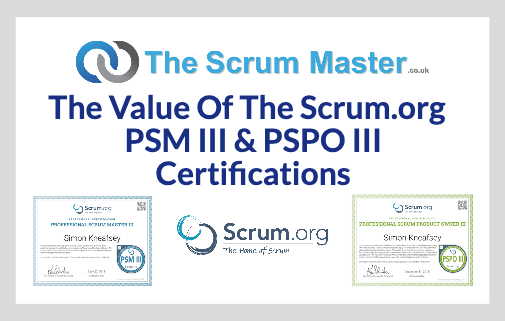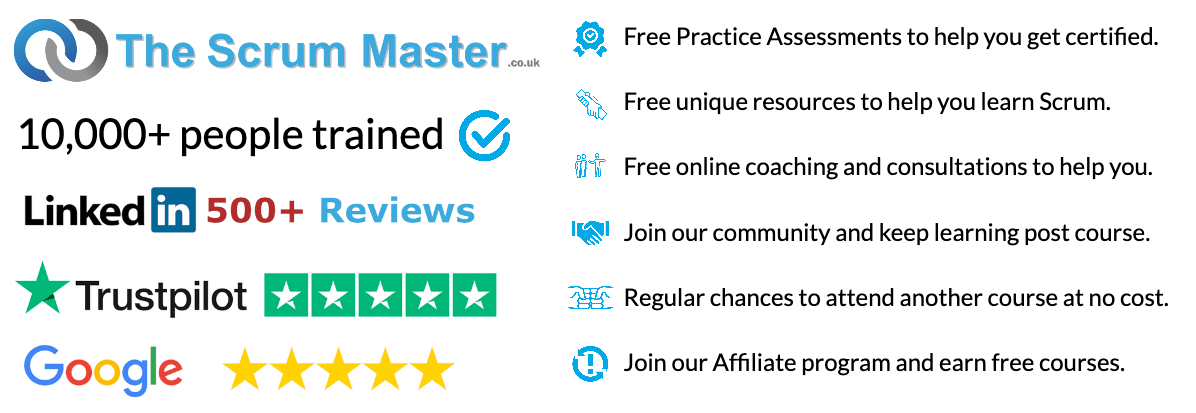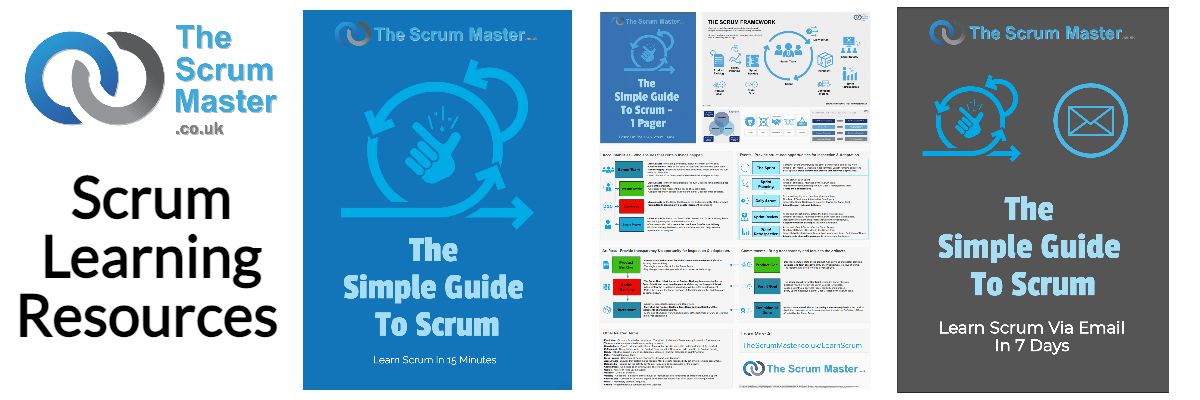 In my recent post, I discussed the value of Scrum certifications. In this post, I will focus on the value of the advanced Scrum certifications from Scrum.org. These currently include Professional Scrum Master level III (PSM III) and Professional Scrum Product Owner level III (PSPO III).
In my recent post, I discussed the value of Scrum certifications. In this post, I will focus on the value of the advanced Scrum certifications from Scrum.org. These currently include Professional Scrum Master level III (PSM III) and Professional Scrum Product Owner level III (PSPO III).
To date, less than 1500 people have passed these assessments and gained the associated certifications. This has always struck me as a low number. The post will explore why that might be, why the number should not be so low and why you might want to consider gaining one of these advanced certifications.
The Scrum.org level III assessments have a reputation as being difficult, and while there is some truth in this, I do not believe they are as tough as people believe. If you have been using Scrum for some time and are willing to put in the hours to learn, they are completely achievable.
I think a big factor that puts many people off is the cost. The assessments are $500 per attempt which is a significant sum. In addition to this, there is the cost of books, training and the time that needs to be invested to learn. So is this significant cost justified? The short answer is yes!
Holding a PSM III or PSPO III certification places you among the top Scrum practitioners in the world for those that recognise Scrum.org and the level of knowledge that these advanced certifications demonstrate. You are lifted out of the crowd of 1 million+ people that hold PSM I, CSM or other entry-level Scrum certifications. This will create significant opportunities for you if you can learn how to utilise it.
Many organisations are crying out for highly experienced Scrum practitioners. A Scrum.org level III certification will put you in a prime position to take a leadership role in one of these companies. To benefit from this, you will need to recognise the value the certifications bring, present yourself appropriately and target yourself for suitable roles.
One of my first PSM students many years ago went on to achieve PSM III within 2 years of their Professional Scrum Master class. They immediately gained increased confidence in their knowledge which helped them to perform more effectively in their role. However, they still didn’t fully appreciate the value of what they had achieved.
Through our discussions, this started to change as they learned how to better position their capabilities. They began applying for different types of roles in organisations that recognised the value of the Scrum.org advanced certifications and Professional Scrum. They soon gained a key role in a wonderful organisation that needed to support its Scrum Teams. The role was challenging, but also highly rewarding. They picked up huge experience in a short time and were able to double their contracting day rate! They have not looked back since.
While certification does not equal capability, it does demonstrate knowledge and this will make you more attractive to potential employers. If you want to give your career a boost and open up new opportunities, consider investing in yourself and working towards an advanced Scrum certification.
I hope that has helped to dispel some myths and demonstrate the value of the advanced Scrum.org certifications. To find out more, you can read my posts on how to prepare for and pass the PSM III and PSPO III assessments. You can also email me or book a time in my calendar for a conversation.
--
 Hi, my name is Simon Kneafsey and I am a Professional Scrum Trainer with Scrum.org & TheScrumMaster.co.uk. I am on a mission to simplify Scrum for a million people. I have helped over 10,000 people so far and I can help you too.
Hi, my name is Simon Kneafsey and I am a Professional Scrum Trainer with Scrum.org & TheScrumMaster.co.uk. I am on a mission to simplify Scrum for a million people. I have helped over 10,000 people so far and I can help you too.
Learn more at TheScrumMaster.co.uk and signup for our newsletter with 80,000+ practitioners.


